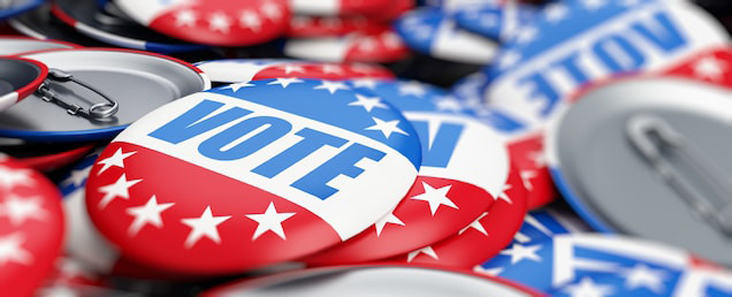<< Back
Awaiting Election Outcomes Can Cause Anxiety: Here’s How to Keep Your Cool

November 04, 2020
If the 2020 U.S. presidential election has left you feeling stressed and anxious, you are not alone and that feeling may not lighten up for a while.
A recent survey by the American Psychological Association (APA) found that more than two-thirds of U.S. adults, or 68 percent, said that the 2020 U.S. presidential election was a significant source of stress — a marked increase from the 52 percent reported during the 2016 presidential election.
“It’s reasonable to expect that many people may feel anxious related to the election,” said David F. Tolin, PhD, ABPP, director of the Anxiety Disorders Center at The Institute of Living (IOL) in Hartford. “This particular election, because it is dragging on, brings with it a great degree of uncertainty and uncertainty which is something that some people tolerate better than others.”
A recently published study from the University of California, San Francisco, examined the mental health impact on participants before and after the 2016 presidential election. Researchers found that individuals who supported the losing candidate saw a decline in their mental health in the months after the election.
That could be exactly where a lot of people are at right now, as the counting and uncertainty around the current election outcome continues.
“It’s important to recognize that if you are feeling bad about the election or you are feeling bad about your candidate losing, then a lot of those feelings are very normal and will subside over time,” said Dr. Tolin.
However, if your distress persists or starts impacting your ability to function, it is important to seek help from a mental health professional. According to the APA, stress and anxiety can trigger such physical trouble as:
- Muscle tension
- Shortness of breath
- Headache
- High blood pressure and heart disease
- Gastrointestinal issues
- Weakened immune system
To help avoid heightened anxiety, try limiting your news consumption, taking a break from social media and blowing off steam with exercise or a good conversation with a friend, as long as you avoid politics.
“The best thing to do is to recognize the truth of the matter, which is this is an uncertain situation and we don’t have all of the answers right now,” Dr. Tolin said. “I would encourage people to tolerate uncertainty as opposed to trying to struggle against it.”